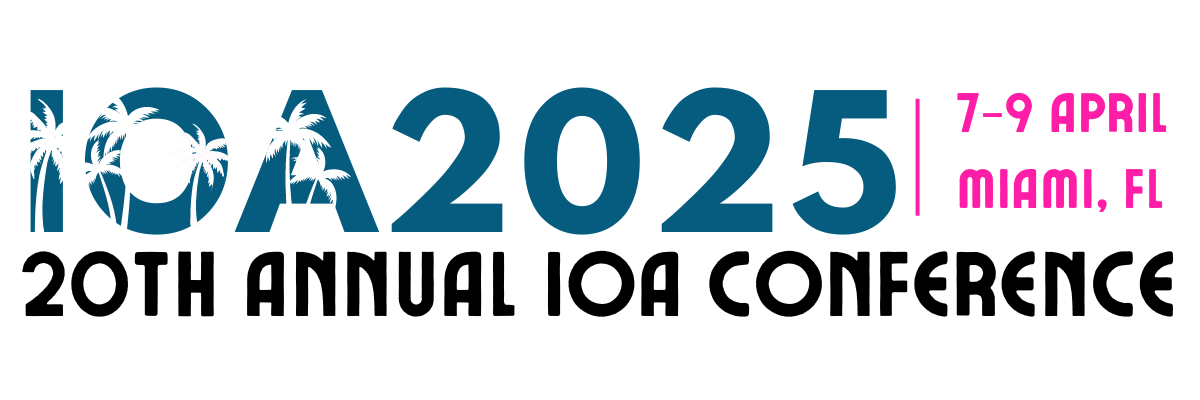2024 Call for Presentations
Proposal Window: 22 September – 23 October 2023
About the Event | Plan Your Proposal | Evaluation Criteria | Submission Details | 5 Tips
The International Ombuds Association warmly invites you to submit a presentation proposal or speaker suggestion for our 19th Annual Conference. Our conference is 18 - 20 March 2024, with preconference days on 15 - 17 March, in Indianapolis, Indiana, USA.
The deadline has now passed. Thank you for your submissions.
About the Event & Our Attendees
IOA Annual Conferences draw attendees from diverse sectors around the world. Participants and presenters represent professionals in academia, corporations, government, non-profits, healthcare, faith communities, the dispute resolution field, and many other organizations. At #IOA2024, we hope to share ideas, collaborate, and explore new theories, concepts, and practices.
After the success of last year's conference, which included more than 500 participants, we expect the #IOA2024 event to be the most connected and well-attended event the International Ombuds Association has ever held.
What Are We Looking to Present at #IOA2024?
It is IOA's goal to continually improve the content we offer conference attendees. Based on evaluations of past conferences we have developed a list of requested topics and areas of interest for #IOA2024. We are particularly focused on innovative offerings to connect with attendees across the world. We also encourage submissions for short presentations that focus on ombuds’ creative work and wellness or practice tips.
Please be sure to review the list of the required information to prepare your proposal. You are welcome to submit more than one proposal and encourage you to share this call for proposals widely in your networks.
General topics of interest include:
- All aspects of conflict engagement and ombuds practice
- New and/or alternative means of providing ombuds services
- Maximizing ombuds’ positive impact on organizations
- Sector-specific constituent issues
- Ombuds as coaches, facilitators, and trainers working with others within an organization, including legal counsel, human relations, compliance, and risk management officials
- The ombuds role in preventing and addressing inequity in our organizations
- Updates on relevant legal and regulatory frameworks
- The value of CO-OP® certification
- Welcoming new IOA members and retaining current members
Evaluation Criteria:
Proposals will be evaluated with consideration of the following:
- Topic will be especially relevant to ombuds and/or applicable to their work
- Work that furthers the ombuds field may also be of interest
- We are interested in conference presentations that are applicable to a range of levels of ombuds experience:
- Emerging (0-3 years of practice and/or knowledge)
- Established (3-9 years of practice and/or knowledge)
- Experienced (over 10 years of practice and/or knowledge
- How the material will be presented. The preference is for presentations that engage participants and include opportunities for application of theory and concepts.
- Experience and background of the presenter(s), including connection of the presenter(s) to the topic.
- Proposals from first-time presenters will be given special consideration
Back to top
Plan Your Proposal
When submitting a proposal, you will be required to include the following information. We have included the list below to help you prepare and gather the required information in advance of completing the call for proposals form.
Presentation Format
- 60-Minute Presentation: This is an in-depth presentation on the topic.
- 15-Minute Presentation: Short presentation related to the practice of ombudsing that raises awareness of an idea, technique tool, or skill. The presentation will be part of a “snack session” – a bite-sized learning session focusing on practice tools, office setup, system design, or working with leadership.
- Either 60-minute presentation or 15-minute presentation
- Half-Day Presentation: as part of the pre-conference
- Full-Day Presentation: as part of the pre-conference
Relevance to IOA Sector(s)
- Academic Higher Education
- Academic K-12
- Alternative Dispute Resolution
- Collateral Ombuds (Holds more than one role at their organization)
- Contract/Part-Time Ombuds
- Corporate
- Construction
- External Ombuds
- Faith-Based Organizations
- Financial Services/Insurance
- Franchise
- Government
- Healthcare
- Intergovernmental
- International
- Legal Service
- Media
- Non-Governmental Organizations
- Non-Profit
- Professional or Trade Association
- Utilities/Energy
- Other Sector
Target audience for presentation (select at least one):
- Emerging Ombuds (0-3 years of practice and/or knowledge in topical area)
- Established Ombuds (3-9 years of practice and/or knowledge in topical area)
- Experienced Ombuds (More than 10 years of practice and/or knowledge in topical area)
CO-OP® Domains: For purposes of recertification approval from Board of Certification for Certified Organizational Ombudsman Practitioners®, please select which of the CO-OP® Domains you expect this presentation may satisfy.
Presentation Details:
- Learning Objectives: State the objectives of the presentation. Identify what participants should have learned after participating in the session. Please phrase the objectives for this presentation so that they complete the sentence "Attendees of this session will..."
- Presentation Details (2000 characters limit, approximately 400 words). This should have 3 sections:
- Background: Briefly discuss or justify the importance of the topic.
- Description: Describe what you will present. Consider providing an outline and/or details of the content of the session.
- Format: Please explain your presentation format (e.g., lecture, discussion, role-playing, etc.) and include details about any preparatory work expected of the participants (e.g., reading a journal article, book chapter, etc.), if applicable).
- Brief Description (400 characters limit, approximately 80 words): This will be used for conference publications (e.g., website).
- Presenter Experience: Describe your experience with and/or depth of knowledge on the topic. Why is this topic important to you?
Presenter(s) Details
All correspondence/communication will be addressed to the person who logs into their IOA account to submit the proposal. The following information will also be requested for the presenter(s).
- First & Last Name
- Employer/Affiliation
- Position/Title
- Email
- Mailing Address
- Presenter Biography: Please provide a brief biography (no more than 100 words) written in the third person to be used in conference publications and read by the room host at the start of the session. Please include your current position and title in the biography.
- Professional Photo (Headshot)
Back to top
Here Are 5 Tips to Help You Prepare Your Speaker Proposal:
1. Be Imaginative
Consider using a unique presentation method that goes beyond the typical lecture style. Be innovative!
2. Identify Your Audience
As you develop your proposal, be sure to keep in mind your intended audience. The IOA Annual Conference brings together hundreds of individuals from across different regions, industries, expertise levels, and backgrounds. By identifying your specific audience early, you can better tailor your proposal. Learn more about IOA attendees on our website.
3. This Year, There Is No Theme!
This year, there is no theme! We invite you to focus on any of the broad range of topics that would interest organizational ombuds!
4. Make Your Content Relevant
Think about the issues facing organizations today. How can you help prepare ombuds to assist these organizations as they navigate their unique conflicts? Learn more about the topics we hope to explore.
5. Prepare Your Proposal in Advance
Gather all of the necessary information for your proposal prior to completing the online form. Be sure your description and learning objectives are clear and concise. Perhaps ask a colleague to proofread your information before you hit submit.
|

